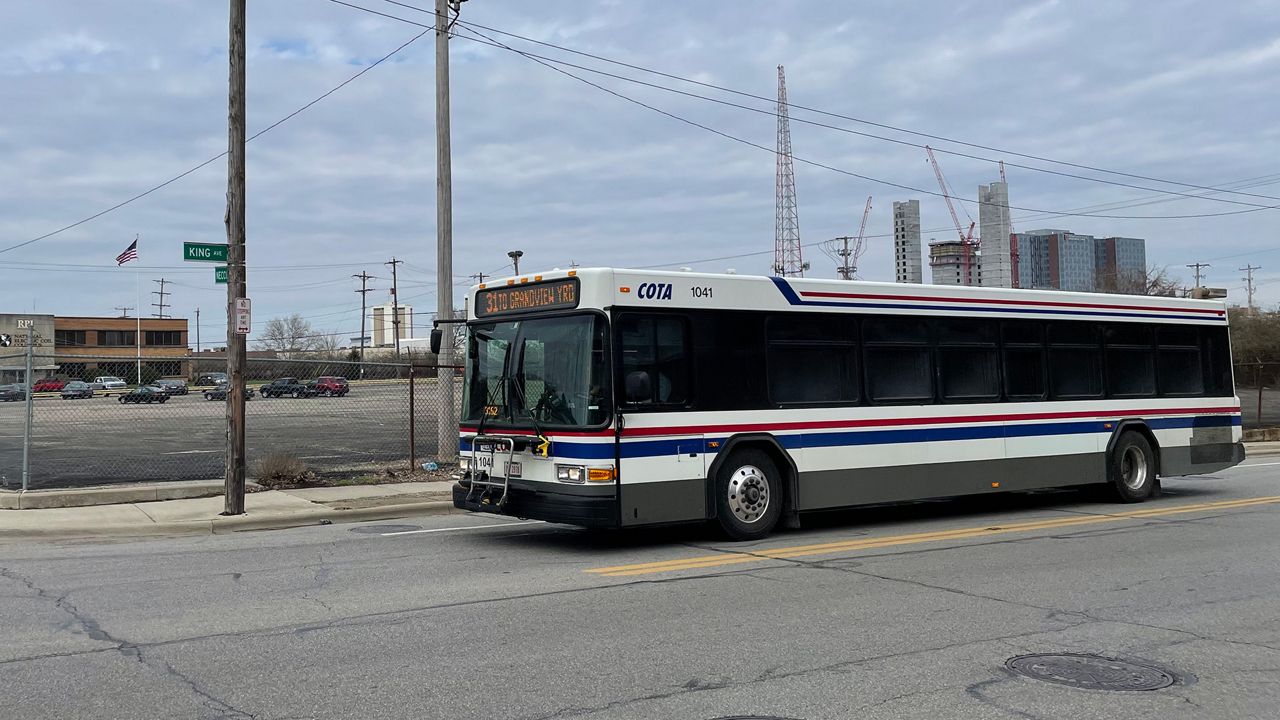COLUMBUS, Ohio — As the public’s patience fades with the federal mask mandate on public transit, compliance with the requirement has become mixed.
What You Need To Know
- The federal government's public transit mask requirement lasts until at least April 18
- Republican states sued in federal court seeking to end the mask mandate
- Riders said they have fading patience with mask requirements for their commutes
Despite most mask requirements falling by the wayside in the last couple months, the Transportation Security Administration continues to require masks on buses, taxis, ride-shares, trains and planes.
More than 20 states with Republican attorneys general, including Ohio, are part of a lawsuit seeking to end the public transportation mandate in federal court.
The mandate's supporters argue it could give us more time to prepare for a future COVID-19 surge if another dangerous variant arises in another part of the world.
Some transit operators are frustrated that passengers think they can forgo masks just because they’re no longer in most areas of life.
Indira Williams, 46, who drives Uber in Columbus, said she notices passengers think their vaccination status exempts them from the rules, which it does not. Williams is not vaccinated.
“I haven't been vaccinated because that was my choice. I wear a mask because I want to protect myself and other people, but I notice that people who have been vaccinated get in the car and make a disclaimer that ‘Oh, we've had our vaccine,’ and they think that's okay,’” she said.
Williams said everyone should wear a mask regardless of vaccination status because vaccinated people can still transmit the virus.
“Just because you’re vaccinated don’t mean you're not catching COVID and passing it to somebody, and I don't know if you're getting in my car and you've recently been in another country where the new variant is spreading around,” she said.
Federal officials said last month the transit mask mandate will apply until at least April 18 to allow time for the creation of a “revised policy framework.”
The federal government removed school buses from the public transportation mask requirement in February, but the rules haven’t changed for city buses.
In Columbus, most passengers who take the local buses, operated by the Central Ohio Transit Authority (COTA), have continued to wear masks even after officials lifted the citywide mask mandate last month.
Justin Edwards, 38, who earns a low-income and doesn’t have a car, said some people think they’re above the mandate, but it's relatively uncommon.
“From time to time, there are people that don't want to wear their mask and the driver does have to enforce the policy. Sometimes the driver will have a spare mask for people, but you can't expect that, so I always make sure to carry an extra mask with me before I go to work or go anywhere,” he said.
Edwards said he will follow the rules, but he does not support the mask mandate anymore, given that masks aren’t required anywhere else.
“At this time, I don't support it,” he said. “I'm boostered, I’m vaccinated. At the moment, I’m just at the point like — whatever happens is going to happen, so I'm kind of over the restrictions right now.”
Zak Davidson, 28, said he appreciates bus drivers are enforcing the mandate as bus routes in Columbus get busier. He takes the bus a couple times per week,
“I’m honestly like surprised when I look up from my book and see everybody has put their mask on and it’s over their nose — people wearing it the right way,” he said. “I’m impressed that folks are following the rules.”
Robert Leis, 36, said he hasn’t noticed any incidents with people refusing to put on a mask on the buses in Columbus. He said he thinks the mandate should be lifted because it’s unfair to only require that masks be worn on buses.
“With like trains and buses, predominantly the people that have been most impacted by the pandemic are the folks that primarily are the riders — communities of color, people that are in lower-income neighborhoods. Those are the people that have been most impacted and they're the ones that are still like being asked to comply with the mask mandates, and so that has been troubling for me,” he said.
Leis said he’s only keeping his masks around for the bus at this point, given they’re not required at most other places. Despite the politics around masking, in Columbus, Leis said bus passengers tend to respect the protocols set by the bus drivers.
"There's just like this kind of respect for bus drivers that I think is kind of unique, and so people are less likely to be disorderly about it," he said."



